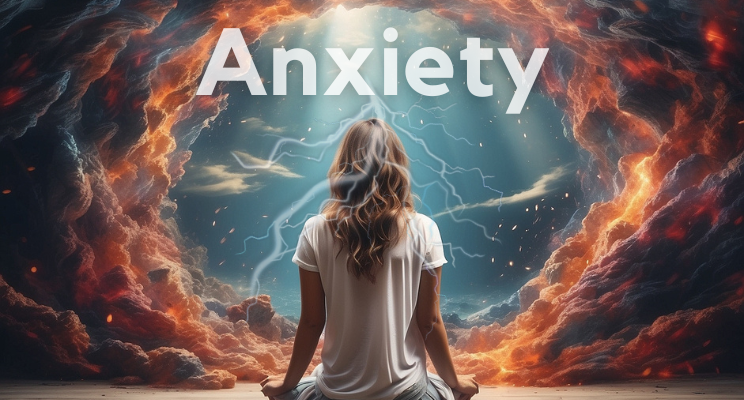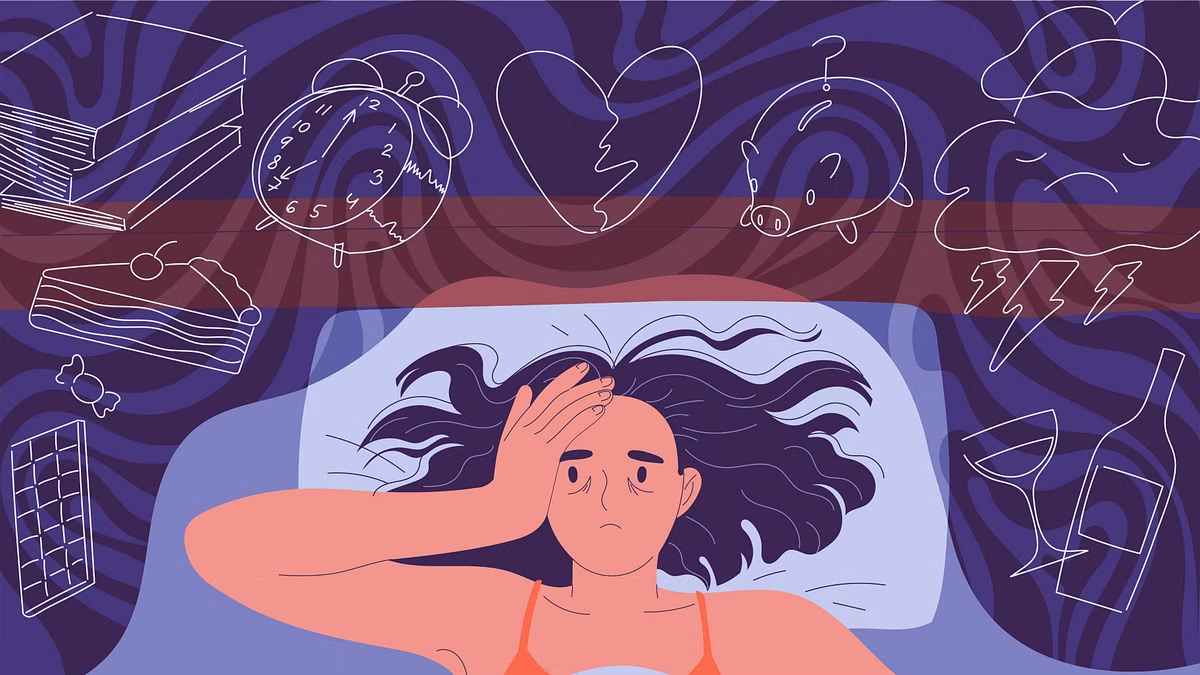
Why Do I Get Anxiety at Night and What Can I Do About It?
Experiencing anxiety at night is a common issue that affects many people. This type of anxiety, often referred to as “nighttime anxiety,” can disrupt sleep, exacerbate stress, and lead to a cycle of sleepless nights and heightened worry. Understanding the causes and exploring effective solutions can help manage and mitigate this distressing problem.

anxiety
Understanding Nighttime Anxiety
Nighttime anxiety typically stems from a combination of factors, including psychological, physiological, and environmental elements. One major cause is the mind’s tendency to ruminate on unresolved worries or stressors when the body is at rest. Without the distractions of daily life, the mind can magnify worries and fears that may have been overlooked during the day.
Biologically, anxiety can also be influenced by the body’s circadian rhythms, which regulate sleep-wake cycles. Disruptions in these rhythms, often caused by irregular sleep patterns or excessive exposure to screens before bed, can contribute to increased anxiety. Additionally, the quiet and stillness of night can make individuals more sensitive to physical sensations, leading to heightened anxiety.
Causes of Nighttime Anxiety
Stress and Overthinking: Daily stressors, unresolved issues, or an overactive mind can lead to anxiety that intensifies at night. When distractions are minimal, the mind may fixate on worries, making them seem more daunting.
Sleep Disorders: Conditions like insomnia or sleep apnea can create a cycle of anxiety and poor sleep. Worrying about not getting enough rest can itself contribute to further anxiety.
Lifestyle Factors: Poor sleep hygiene, such as irregular sleep schedules, excessive caffeine intake, or late-night screen use, can disrupt the body’s natural sleep cycle and increase anxiety.
Mental Health Conditions: Existing conditions like generalised anxiety disorder (GAD), depression, or panic disorders can exacerbate nighttime anxiety. Individuals with these conditions may find that their symptoms worsen at night.
Environmental Factors: A noisy or uncomfortable sleeping environment can contribute to anxiety and restlessness, making it harder to relax and fall asleep.
Strategies to Manage Nighttime Anxiety
Establish a Bedtime Routine: Creating a consistent and calming pre-sleep routine can signal to your body that it’s time to wind down. This may include activities such as reading a book, taking a warm bath, or practising relaxation techniques.
Practice Relaxation Techniques: Techniques such as deep breathing, progressive muscle relaxation, or mindfulness meditation can help calm the mind and body before bedtime. These practices can reduce the physiological symptoms of anxiety and promote a sense of calm.
Limit Screen Time: Exposure to screens before bed can interfere with the production of melatonin, a hormone that regulates sleep. Try to limit screen time at least an hour before bed and consider using blue light filters if screen use is unavoidable.
Create a Comfortable Sleep Environment: Ensure that your bedroom is conducive to sleep by keeping it dark, quiet, and cool. Invest in a comfortable mattress and pillows to enhance sleep quality.
Manage Stress During the Day: Addressing stressors during the day can prevent them from affecting your sleep. Practice stress-management techniques such as exercise, time management, and setting boundaries to reduce overall anxiety.
Seek Professional Help: If nighttime anxiety persists despite self-help strategies, consider seeking support from a mental health professional. Therapists can offer tailored interventions, such as cognitive-behavioural therapy (CBT), which can help manage anxiety and improve sleep.
What are the common psychological and physiological causes of nighttime anxiety?
Nighttime anxiety often arises from a blend of psychological and physiological factors that disrupt the peace needed for restful sleep. Psychologically, the quiet and stillness of night can amplify worries and fears that may have been manageable during the day. As the mind becomes less distracted by daily activities, it may fixate on unresolved stressors or anxieties, making them seem more significant. This heightened state of alertness can lead to a cycle of overthinking and restlessness. Physiologically, disturbances in the body’s circadian rhythm—the internal clock that regulates sleep-wake cycles—can contribute to nighttime anxiety. Disruptions such as irregular sleep patterns, excessive screen time before bed, or overstimulation can interfere with the production of melatonin, a hormone crucial for sleep. Additionally, physical sensations that are less noticeable during the day, such as an elevated heart rate or muscle tension, can become more pronounced at night, contributing to feelings of anxiety. Together, these psychological and physiological factors create a challenging environment for achieving restful sleep.
When should someone consider seeking professional help for nighttime anxiety, and what types of therapy are most effective?
Seeking professional help for nighttime anxiety is advisable when the anxiety becomes persistent, severe, or significantly impairs daily functioning and quality of life. If self-help strategies and lifestyle changes do not alleviate symptoms, or if nighttime anxiety is accompanied by other mental health concerns such as depression or panic disorders, professional intervention may be necessary. Effective therapies for nighttime anxiety include cognitive-behavioural therapy (CBT), which focuses on identifying and altering negative thought patterns and behaviours that contribute to anxiety. CBT for insomnia (CBT-I) is particularly useful, as it addresses both anxiety and sleep disturbances. Additionally, mindfulness-based therapies, including mindfulness meditation and acceptance and commitment therapy (ACT), can help individuals manage anxiety by promoting relaxation and a non-judgmental awareness of their thoughts and feelings. In some cases, medication may be prescribed to manage severe anxiety or sleep disorders, but it is typically considered after other therapeutic options have been explored. Consulting with a mental health professional can provide personalised guidance and support tailored to individual needs.